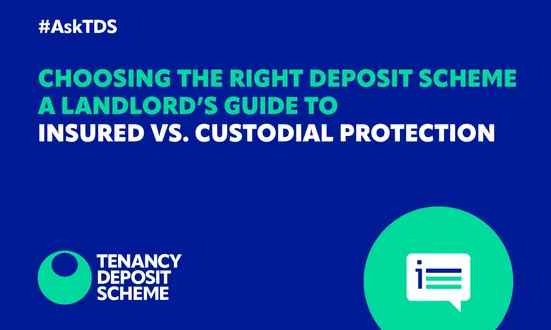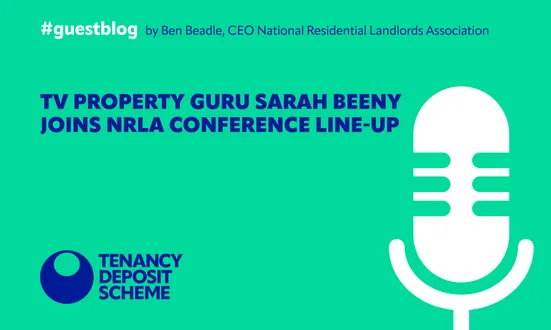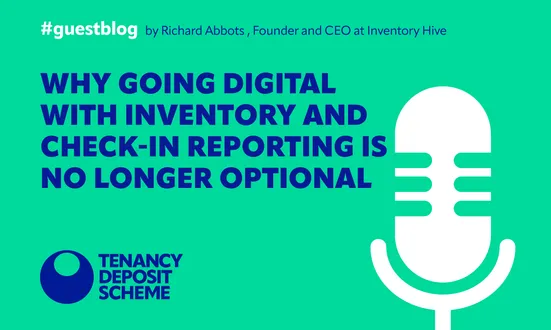If you’re renting privately, one of your biggest monthly expenses is likely your rent. With the cost of living rising, it’s natural to wonder: how much can my landlord actually charge? And what happens if I can’t keep up with the payments? This blog will guide you through your rights and options when it comes to rent increases and rent arrears, and how the Tenancy Deposit Scheme can help protect you during your tenancy.
Is there a limit to what my landlord can charge?
For most tenancies started after 15 January 1989 (including assured and assured shorthold tenancies), there are few limits on rent levels. Landlords can generally charge “market rent” which is essentially, what tenants are willing to pay.
However, the Renters Rights Bill proposes changes that aim to make rent increases fairer and more transparent. While it won’t introduce rent controls, it will limit increases to once per year and require a formal process to be followed.
If you’ve just signed a tenancy and realise your rent is higher than similar properties nearby, you can apply to the First-tier Tribunal (Property Chamber) to challenge it, but this must be done within the first six months of your tenancy.
Can my landlord increase my rent?
Yes, but there are rules. Your rent can only be increased by:
- Terms in your tenancy agreement (e.g. a rent review clause)
- Mutual agreement between you and your landlord
- A Section 13 notice, once you’re on a periodic tenancy
- A new fixed-term contract offered at a higher rent
If you agree to pay the higher amount even without formally accepting it, this can be seen as giving your consent, so be careful. Always ask for changes in writing and make sure you understand what you’re agreeing to.
Under the Renters Rights Bill, all rent increases will have to go through a formal Section 13 notice and come with at least two months’ notice, further protecting tenants from sudden or unfair changes.
Can I challenge a rent increase?
Absolutely. If you believe the proposed rent is too high, you can apply to the Property Tribunal before the increase takes effect. The tribunal will look at comparable rents in your area to determine a fair amount.
It’s worth gathering evidence, such as:
- Local listings of similar properties at lower rents
- Photographs or reports showing disrepair in your home
What happens if I can’t afford my rent?
Rent is one of your most important financial obligations, and unpaid rent is a leading cause of eviction. If you start to fall behind:
- Tell your landlord right away. Lack of communication will only make things worse.
- Pay what you can. Even partial payments show goodwill.
- Seek support. Depending on your situation, you might be eligible for:
- Universal Credit or Housing Benefit
- Discretionary Housing Payments from your local council
- Help from local Resident Support Funds
- Free advice from Citizens Advice, Shelter, or MoneyHelper
- Civil Legal Advice if you’re eligible for legal aid
If your rent arrears are part of a wider debt issue, a debt advisor can help you work out a repayment plan.
Mediation service for rent arrears
If your deposit is protected with the Tenancy Deposit Scheme, you will also be able to access free and impartial mediation through the Tenancy Redress Service (TRS). This service helps landlords and tenants reach agreement on issues like without needing to go to court. The TRS helps with a large variety of complaints such as poor property standards, disrepair, landlord access and rent arrears.
About TDS
The Tenancy Deposit Scheme is part of The Dispute Service (TDS), the largest tenancy deposit protection and resolution service provider in the UK making life easier for tens of thousands of agents, landlords, developers, and millions of tenants and homebuyers.
Our award-winning customer service is highly rated on both Trustpilot and Google, and we’re backed by the NRLA, Propertymark and RICS.
We provide quick and hassle-free online deposit protection, free guides and information in our online help centre, free dispute resolution and free mid-tenancy mediation for tenants and landlords.
Our free tenant lifecycle app, tlyfe, makes renting smarter. Manage your TDS deposit, get pre-qualified, build your credit ratings, and more.
Other news stories


